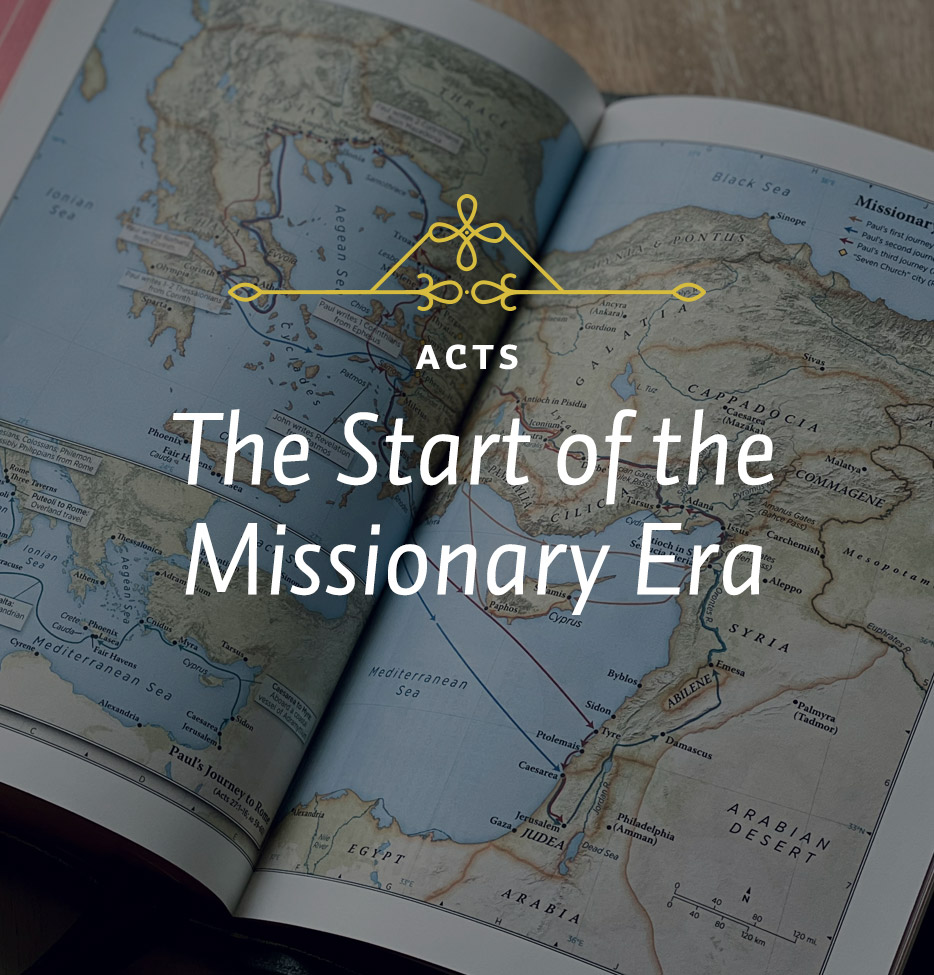In today’s study we conclude our look at the church in Antioch, which was used by God as a great missionary tool.
5. This was also a worshiping and praying church. We see this in verse 2 where we are told that while they were worshiping the Lord and fasting, the Holy Spirit spoke to them about sending Barnabas and Saul to the Gentiles. Sometimes churches forget that power in ministry comes from God, and they lose contact with Him. That was not the case with this church. It was an active church, even blazing new ground. But it knew that its life came from God and therefore did not abandon its worship.
6. Finally, it was a seeking church. I say this because of the word “fasting.” Sometimes when I am reading commentaries on a passage I come across humorous things, and that has been my experience here. One person who obviously fasted very little, if at all, explained that “fasting” means that when you are working on a sermon you sometimes get so involved with it that you forget to eat a meal. Well, I often miss a meal because of my work too, and if that is what “fasting” means, I do fast often. But I do not think that is what this verse is talking about. In the Bible “fasting” means to forego food for a time in order that, in a spiritual frame of mind and having one’s time given over to spiritual things, one might seek God’s direction for a new phase of life. The church at Antioch was seeking such direction.
Perhaps the church was seeking the role it should play in world missions. And why not? These people knew the Great Commission. Acts begins with it. The early preachers of the Gospel undoubtedly shared it with them. Paul had been told that he was to be a missionary to the Gentiles. Years had gone by. Perhaps Paul had even been talking about this, saying, “I think it may be time for me to get on with this task.” The church at Antioch may have shared his thinking: “Perhaps it is time for us to be useful.”
The church did not want to make this decision on their own, however, taking it upon themselves to fulfill a specific missionary function. Rather they waited upon the Lord and sought His leading. It was in a prayer meeting that the Holy Spirit said, “Set apart for me Barnabas and Saul.”
The second thing we need to notice in these verses is the emphasis upon the Holy Spirit. This is important too, because if mission work is to be successful, it is going to have to be the Lord’s work.
If we try to do it in our own strength, nothing will happen. Our efforts will be as fruitless as Peter’s efforts at Pentecost would have been if the Holy Spirit had not come. Peter would have stood up before those who had been instrumental in crucifying his Master, would have condemned their sin and called them to repentance, and not one would have repented. As a matter of fact, they would very likely have done to Peter what they did to Jesus earlier. But when the Holy Spirit blessed Peter’s speaking, that which a day earlier would have been entirely fruitless became fruitful, and 3,000 people believed. At Antioch the Christians sought the will of God, the Holy Spirit led, Paul and Barnabas were set apart, and God eventually blessed what these first missionaries did.
When we first begin to encounter the person of the Holy Spirit (at the beginning of Acts 2), the single most important thing to get settled in our minds is whether the Holy Spirit is a person or a power. There are many people who think of the Holy Spirit as a power. Simon the magician was one. He offered to buy the power, because it seemed to be something he could get hold of and use. Peter had strong words for him, saying, “May your money perish with you, because you thought you could buy the gift of God with money!” (Acts 8:20-21).
The Holy Spirit is not a power for us to use. He is a Person, the third Person of the Trinity. So rather than thinking of the Holy Spirit being a power which we are somehow to seize and use, we are to think of Him as a person whose job it is to use us. Acts gives us this contrast. In chapter 8 we have Simon wanting to get and use the Holy Spirit, but in chapter 13 we have the Holy Spirit getting hold of and using Barnabas and Saul.






